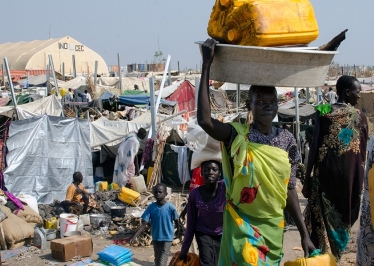Fighting blocks humanitarian assistance in Upper Nile: IOM
January 31, 2017 (JUBA) – The International Organisation for Migration (IOM) said it has been forced to suspend humanitarian activities in Wau Shilluk in South Sudan’s Upper Nile area, due to violent clashes over the weekend, putting thousands at risk.

“Violence in Upper Nile has once again hindered the ability of IOM and other relief agencies to provide assistance to populations seriously in need,” said IOM South Sudan chief of mission, William Barriga, adding that, “Civilians will undoubtedly suffer as sporadic fighting makes it more difficult for aid workers to deliver services.”
According to IOM, clashes between South Sudan’s warring factions began south of Wau Shilluk on 25 January and continued to spread in the direction of Wau Shilluk and Malakal town. The shelling, the agency said, gradually grew closer to Wau Shilluk on 27 January just as the 14-person IOM team was about to resume registration, forcing staff to evacuate to safer areas with the support of World Vision.
An estimated 2,000 to 3,000 people remained to be registered when the team was forced to evacuate. Between 16–26 January, 20,446 people were registered or verified as previously registered last year, it said.
“Maintaining accurate registration information informs more accurate response planning and tracking of displacement trends in the volatile Upper Nile region,” IOM said in a statement.
Wau Shilluk is located across the White Nile River from Malakal town, one of South Sudan’s largest urban areas before the current crisis and home to more than 33,000 internally displaced persons who are sheltering at protection of civilians (PoC) sites.
IOM, however, estimates that between 12 November and 30 December when river access opened, more than 2,000 people left the Malakal PoC site to travel to Wau Shilluk to re-join family members, cultivate land or proceed on to refugee camps in Sudan.
“Only 60 percent of these indicated that they intended to leave permanently,” stressed the agency.
Nearly two million people have been displaced internally and another 1.17 million people have fled to neighbouring countries since the South Sudan crisis erupted in mid-December 2013.
(ST)
